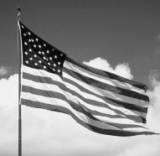
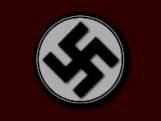


Skokie: For all or for none
By Jon Bertran-Harris and Daniel Ketchell
Table of Contents
At the end of World War II, many Europeans migrated from war-torn Europe to the freedom and prosperity offered by the United States. Of these Europeans many were Jews escaping horrors beyond human comprehension.

Many American soldiers still retain vivid memories of entering the concentration camps to find living skeletons crowding around them. It is not an exaggeration to say that almost every inmate was insane with hunger and fear.
For most, the war had ended, but the seven thousand survivors of the Holocaust settled in the quiet village of Skokie, Illinois relived these memories daily. A strong sense of community developed in Skokie, whose population of 69,000 included about 40,000 Jews. They flocked to America for its security and religious freedoms.
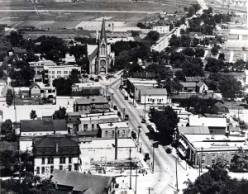
(Ariel view of Downtown Skokie)
In 1970, a series of events began that seemed an imminent threat to these freedoms. The drama began in Chicago's Marquette Park, a short distance from Skokie near the headquarters of the National Socialist Party of America. The leader of this white supremacist group, Frank Collin, protested that his First Amendment rights had been challenged when Park officials refused to issue him a permit to speak in Marquette Park. In 1972, the Seventh Circuit Court of Appeals agreed that the City of Chicago must allow the Nazi leader and his followers the opportunity to speak publicly and hold rallies. Until 1976, Collin exercised these rights with little opposition.
In 1976, Chicago Park District officials decided to impose a $250,000 bond in order to cover the costs of policing rallies and marches. Once again, Collin believed his rights to be challenged. In early 1977, he wrote letters to Chicago suburbs announcing his intent to demonstrate against this injustice. Every suburb, except the village of Skokie, ignored him.
COLLIN AND THE ACLU COME TO SKOKIE
Village officials demanded that he pay a liability insurance bond of $350,000 and then the Village obtained a county court injunction against the proposed protest outside the village hall.
Skokie took steps to adopted three municipal ordinances designed to block Nazi demonstrations: a liability insurance requirement, a ban on public demonstrations by members of any political party wearing military-style uniforms and the prohibition of materials or symbols anywhere in the village which promoted or hatred against people by reason of their race, national origin, or religion.
Collin responded to the injunction by calling on the Illinois division of the American Civil Liberties Union asking them to defend this clear violation of his First Amendment rights to free speech and assembly. The ACLU agreed that a violation had occurred, and David Goldberger, an attorney for the ACLU, requested an immediate review of the injun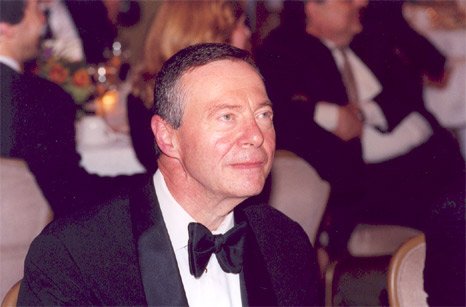 ction by the Illinois Appellate Court. This was denied.
ction by the Illinois Appellate Court. This was denied.
This defense of the Nazis caused dissension in the ACLU and criticism of the organization. When asked why the ACLU would defend Frank Collin, Senior Director Aryeh Neier replied, "Everybody has a right to express their opinion anywhere in the United States and even if we find the opinion despicable, we're going to protect their right to express it."
David Goldberger agreed "We are in the business of supporting the first amendment. We do not support the ideas of this particular organization, nor have we ever, nor will we ever. But the issue is not the content of their views, the question is what is the power of government to pick and choose among speakers in the marketplace of ideas?" The A.C.L.U. was not defending Nazis; it was defending freedoms guaranteed by the Constitution. If Nazis can be silenced by laws, Jews, Communists, or White Anglo-Saxon Protestants can also be silenced. As Samuel Rabinove, Director of American Jewish Committee wondered, "Once you go down that slippery slope, the question becomes, where do you stop?"
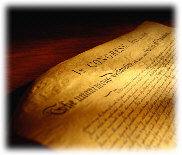
Justice Oliver Wendall Holmes once said, "The First Amendment protects free thought, not free thought for those who agree with us, but freedom for the thought we hate. If the past two centuries of struggle to preserve freedom of expression have taught us anything, it is that the first target of government suppression is never the last. Whenever government gains the power to decide who can speak and what they can say, the First Amendment rights of all of us are in danger of violation. But when all people are allowed to express their views and ideas, the principles of democracy and liberty are enhanced. This extends even to that speech which is most hateful and offensive."
. 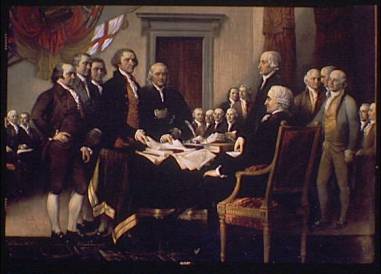 http://www.americanrevolution.com/DeclarationofIndependence.htm (Signing of the Declaration of Independence)
http://www.americanrevolution.com/DeclarationofIndependence.htm (Signing of the Declaration of Independence)
Meanwhile, Skokie's resistance to the march was falling apart. Federal Judge Bernard Decker struck down 3 separate village ordinances, the last of a series of judicial decisions which removed the final obstacles to the Nazi March.
Skokie officials announced that they would seek review by the United States Supreme Court. Meanwhile, Frank Collin requested a permit for a 30-minute march in front of the Skokie village hall on Sunday, June 25, and Skokie officials promptly, but reluctantly, issued the permit. The national media turned its focus on Skokie as events rushed headlong to their climax.
50,000 people from all over the world, including Illinois governor James Thompson, promised a counter-demonstration, where Jewish Defense League leader Rabbi Kahane threatened that "blood would flow in the streets, and it won't be Jewish blood."
Many felt differently. This was not an issue of free speech for those who survived the Holocaust
Abbot Rosen of the anti defamation league stated: "Nazis marching in downtown Chicago protected by the first amendment, Nazis in their regalia moving to this Jewish village with the thousands of survivors of the Holocaust wearing the Jack Boots, their brown shirts, their swastikas, they are physically assaulting the persons living in Skokie, saying to them, 'We missed you last time, the gas furnaces are still there, we'll get you next time."
According to Sol Goldstein, a Skokie resident and survivor of a Nazi concentration camp, "Our attempts to stop the Nazis from marching in our village were in memory of 11 million civilians, Christians and Jews, who were senselessly murdered by t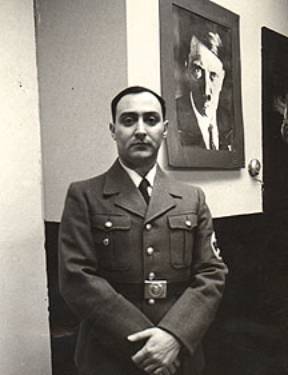 he Nazis. The Nazis who come to march in Skokie are the same who butchered our people. They say the same things, they wear the same symbols, and if they ever take power, they mean to do the same kinds of things Hitler's Nazis did."
he Nazis. The Nazis who come to march in Skokie are the same who butchered our people. They say the same things, they wear the same symbols, and if they ever take power, they mean to do the same kinds of things Hitler's Nazis did."
Many agreed with Goldstein: how could these words be protected by our government? Frank Collin stated in an interview, "I would consider the all non-Aryans subhuman. The white race, the Aryan race, is the only race capable of creating and maintaining civilization."
http://www.flavinscorner.com/collin.htm (Nazi leader Frank Joseph Collin)
With internal problems plaguing his group, Frank Collin announced that he would call off the Skokie march if certain conditions were met. He claimed to want only the restoration of his First Amendment rights to speak and to assemble. Within three weeks, he had everything he had asked for; his group would be permitted to march through Marquette Park. On June 20, 1978, he called off the Skokie march.
Only a handful of Nazis showed up for the demonstration. Far outnumbered by opponents, they completed their march, then left under police protection.
It ended, as it had begun, not as a case involving the Holocaust survivors of Skokie, but as one having to do with free expression in a free society in a place called Marquette Park, on Chicago's south side.